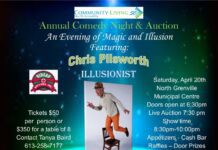I think the line between childish games and academic endeavour can be very hard to discern sometimes. Although academics often consider their particular field of interest to be the most important in the world, they do seem to indulge in the most impractical and speculative exercises. Historians can be particularly prone to such self-indulgence, although in their case it is rather fascinating to follow some of the alternatives they explore. In universities and colleges, they call it “Counterfactual History”, but others simply refer to it as “What if…”.
You know the kind of thing I mean: what if one young man in Sarajevo in 1914 had decided to go home instead of stopping for a cup of coffee? What if the Archduke’s car had not accidentally turned the wrong corner and stopped right in front of that coffee shop? What if he had not been shot and killed by that young man, in the wrong place at the wrong time? Would there have been no First World War? Would that then lead to a different history, one without the Versailles Treaty, the rise of Hitler, the Second World War, the occupation of Eastern Europe by the Soviet Union after 1945, the Cold War, the atom bomb, etc., etc., etc., ad infinitum?
So many other exercises in what if history can be enjoyed. What if Robert Kennedy had not been murdered in 1968, but instead went on to win the Presidency over Richard Nixon? No Watergate, an earlier end to the Vietnam War, a continuation of the social programs to combat poverty, racism and violence? Closer to our own day: what if Al Gore had not been cheated out of the Presidency in Florida? Would he have reacted differently to 911? Would there have been an Iraq or Afghanistan war, and would the Middle East have escaped the nightmare in which it is trapped today?
There are no obvious answers to any of these questions, of course. Events happen, and once a decision is made: to turn this corner, rather than that one; to kill this man, but not that one; to elect this person and not another, history does not then follow a set track.
Immediately, other imponderables enter into the equation and history takes a different turn once again.
The same kind of exercise is often worth indulging in outside of academia. In our own lives, we can look back and wonder what might have happened if we had taken a different turn one day. As Robert Frost put it in “The Road Not Taken”: Two roads diverged in a wood, and I— I took the one less travelled by, And that has made all the difference.”
Looking back, I can remember distinct moments in my life when I made what I thought at the time was a fairly simple decision. And that one decision changed the entire direction of my life. More than once, I was fully aware of the possible consequences of a decision, weighing the pros and cons, trying to see which road was the right one – the one less travelled, or the obvious one ahead. I believe every one of us can remember similar moments, when the world changed forever. What if…?
There are those who see the hand of chance in this. Others see the hand of God. Some believe that everything in the universe is random, no purpose, no meaning, nothing directed. They see these pivotal moments as mere luck, chance, almost inevitable given who and what we were at the time, and what we, in our subconscious minds, actually want to do.
It’s a fascinating thing to think about, but I can’t help finding more than random chance in these moments. Given that we can’t foretell the future and cannot really know what the end result of our decisions might be, we nevertheless take those decisions. They are not made for us, and they are not inevitable. Looking back later, we may be surprised at ourselves that we took that decision, that road less travelled. It seems in retrospect to be out of character. Other decisions seem quite logical and obvious to us now, but perhaps were not so clear then.
In the end, we decide. Princep decided to shoot Archduke Ferdinand. Britain and France decided not to oppose Hitler when they still could without war. You made the decisions that brought you to where you are now. Or someone else’s decisions, interacting with yours, did so. What a strange life we lead. It is worth stopping sometimes to think about it. Socrates said it centuries ago: the unexamined life is not worth living. Time to think.






What if there’s no God, no religion, no heaven. What would be different. Nothing! Well maybe there wouldn’t be unrest in the Mid-East, wars in Iraq, Syria, etc., no IRA or bombings in Ireland, no English control of Ireland, no priests raping children, and no money spent on palaces in which to worship.
Sadly, most of those things would happen anyway. IRA, etc. was never about religion, and most wars are about politics and power. They aren’t fighting over doctrine. Likewise, there will always be those who know how to use the system to get rich at other’s expense, and priests are far from being the only paedophiles: as we know too well. Perhaps not imposing celibacy would be a good idea too. And there is a God.
I’ve been trying my best to give up on all the “what ifs” for decades.
What has happened in the past has happened. All I can deal with are the results of events and decisions, etc.
I live by the following: ” GOD CONTROLS ALL EVENTS, WHETHER GOOD OR BAD
Nothing happens in the the universe without God willing and allowing it. This statement must he taken absolutely of everything with the exception of sin. ‘Nothing occurs by chance in the whole course of our lives’ is the unanimous teaching of the Fathers and Doctors of the Church, ‘and God intervenes everywhere.’ ”
From http://www.olrl.org/snt_docs/trustful/